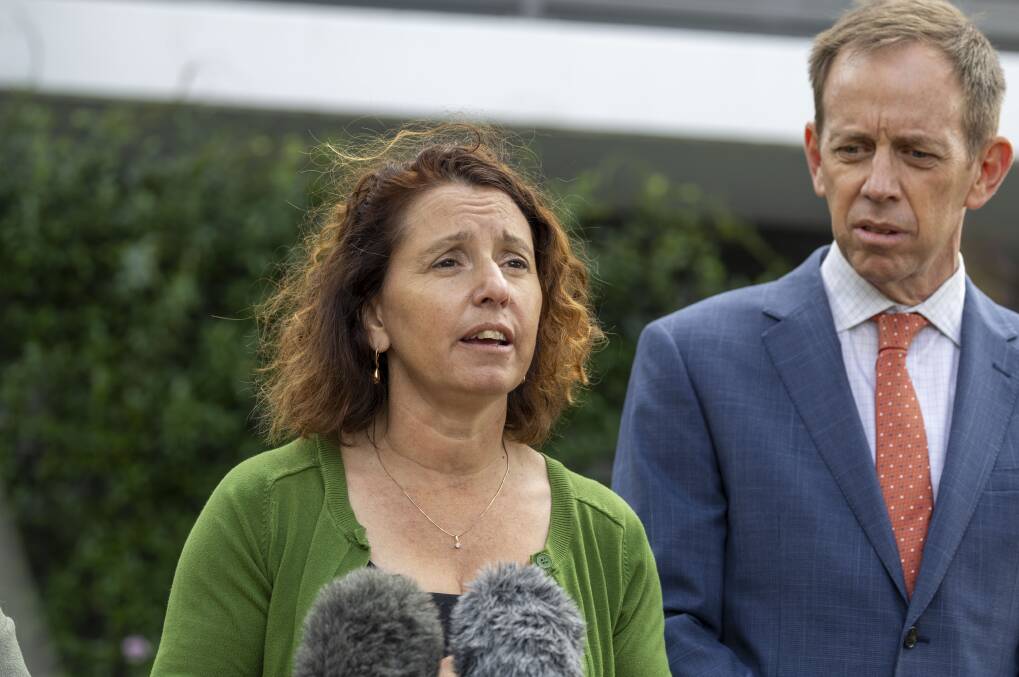A multibillion-dollar public housing commitment from the ACT Greens has been met with political resistance, with one expert saying it was probably not the best way for the territory to spend its money.
The Greens on Thursday announced they would take to the ACT election a policy of spending $5.9 billion to build and buy 10,000 new public housing dwellings over the next decade.
The Greens policy - which the party paid to have independently costed by Purdon, a consulting firm - includes establishing a government-owned housing developer, establishing a hub to manufacture prefabricated public housing and establishing a government-owned public housing maintenance provider.
The policy also includes establishing a pilot program to allow Canberra home owners to sell their properties to the government to increase public housing stock.
Deputy Greens leader Rebecca Vassarotti said the only way for the ACT government to fix public housing was for it to step in.
"This is the biggest housing affordability initiative ever proposed in the history of self-government," Ms Vassarotti said.
Greens leader Shane Rattenbury said the government needed to prioritise people over profit in a transformed housing market.
But Housing Minister and Labor housing spokeswoman Yvette Berry said the Greens were making promises to vulnerable Canberrans the party knew they could not possibly keep.
"The Greens political party have been part of the ACT government for almost a decade. They know better and they should be upfront with the community about the huge hurdles to implement this policy," Ms Berry said.

"Where is the workforce going to come from? Where will the houses be located? What will be the impact on other essential government services?"
Opposition Leader Elizabeth Lee said the Greens' policy was unachievable and again demonstrated why it was dangerous for the Greens to govern with Labor.
"There is no realistic explanation of how these tens of thousands of new homes will be delivered. If they haven't delivered more public housing dwellings in the 12 years they've been in government, they won't ever deliver them," Ms Lee said.
Ms Lee said the policy would put the ACT's budget into an "even more diabolical state".
Ben Phillips, an associate professor at the Australian National University's centre for social research and methods, said 10,000 new publicly owned dwellings would be nice to have but was probably not the best way for the ACT to spend its money.
Mr Phillips said the government would ideally consider a longer term target for public housing, which would require a significant investment but not one as substantial as that proposed by the ACT Greens.
Increases to Commonwealth rent assistance and the JobSeeker payment would be a more ideal short-term solution, he said.
"The need for public housing in Australia remains strong and partly unmet but public housing development on a grand scale is an expensive solution that comes with a hefty price tag and its own set of issues," Mr Phillips said.
Mr Phillips said public housing was most suitable for people who would not find the private housing sector suitable over the longer term.
"Some of those in housing stress now will move out of stress in the near future and no longer require such substantial government assistance," Mr Phillips said.
"Current tenancy arrangements mean that public housing renters have tenure for life and this throws up issues of disincentives to work as rent is linked to income and provides some renters with a considerable benefit compared to other renters in similar situations. It's akin to winning the lotto."
Liam Davies, a lecturer at RMIT's centre for urban research who focuses on affordable rental policy, said Australian governments had not built enough social housing over the last 20 to 30 years and it was cheapest for governments to build their own housing.
"That means that we currently have a shortfall that's been decades in the making. Therefore, any action that governments could take to increase supply of social housing is very, very welcome," Mr Davies said.
Mr Davies said expanding the availability of public housing to low- and middle-income earners would also increase the amount of rent the government collects, because rents are tied to the incomes of tenants.
"If you can start housing more lower- and middle-income households in the system, they can provide rent that can be above the provision of their housing cost ... which means that the overall economic health of the public housing system improves," he said.
Mr Davies said it was also cheapest for governments to produce its own housing, rather than buying existing properties or off-the-plan dwellings, particularly in the ACT with a leasehold system.
"And the reason for that is quite simple: the government owns land, so they can build on their own land, which reduces the overall housing cost. But secondly, whether they're the contractor or whether they're the project manager, they can cut out some of the profit necessity that developers have ... the state doesn't need the profit so they can use that as a saving," he said.
Yogi Vidyattama, an associate professor at the University of Canberra's school of politics, economics and society, said the Greens' proposal was ambitious but he was concerned the price would not cover increasing material and labour costs to deliver the housings.
Dr Vidyattama said a government-owned developer would avoid the risk of a financial collapse, but would put pressure on the government's budget.
Overall, increasing public housing was a necessary step as the number of people at risk of homelessness in Canberra had grown, but the Greens would need to work out how to spread the new housing out to avoid issues associated with concentrated public housing sites, he said.







